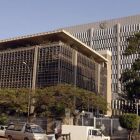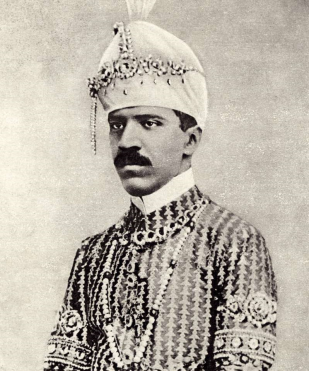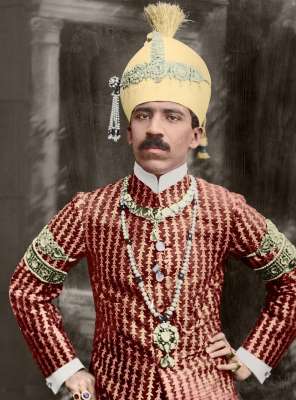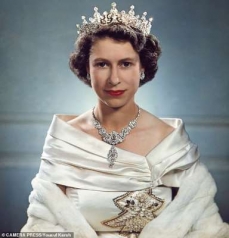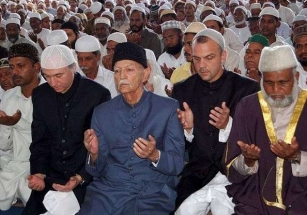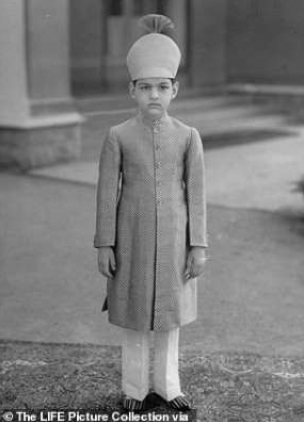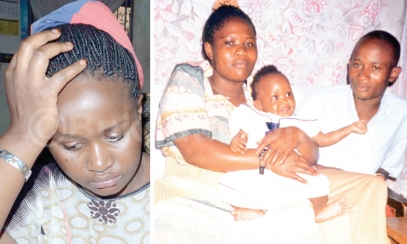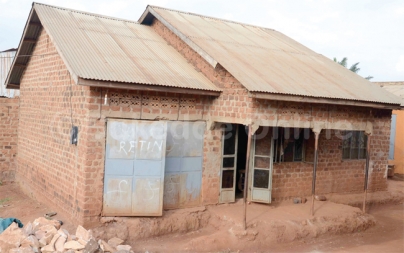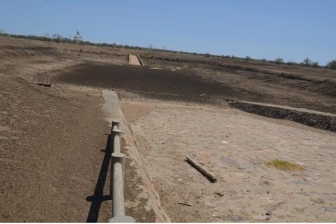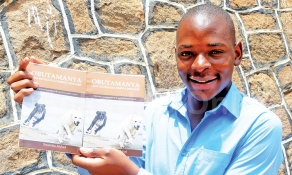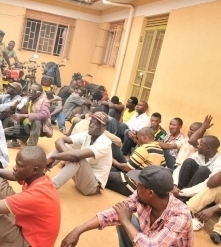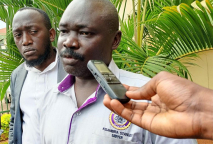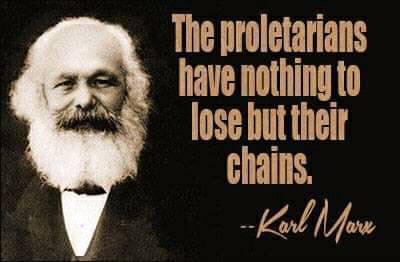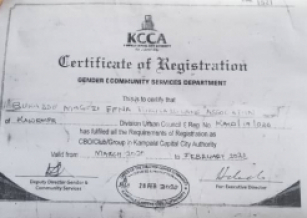The Minister of State for Disaster Preparedness, Mr Musa Ecweru, says the drought has since left nearly 9 million Ugandans in urgent need of food aid across the country. Only 1.3 million Ugandans needed food relief three months ago.
Even for families with some food, millions are trekking long distances in search for water for both domestic use or for their animals as most water sources have dwindled or dried up.
Crossing into Lango
In Karamoja sub-region, an unknown number of cattle have starved to death forcing the nomadic pastoralists to cross into Lango sub-region in search of pasture and water.
All the dams in the sub-region have dried up apart from one at Kobebe in Moroto District, which is stressed and could dry any time due to the influx of Turkana herdsmen from neighbouring Kenya.
At least 10,000 head of cattle, have been driven into Lango, according to Mr Paul Luwok, who is leading one of the pastoralist groups.
“I have instructed my people not to graze their animals in people’s fields, neither uproot cassava nor rape any woman as any offender will be dealt with,” Mr Luwok said.
In Pallisa District, one of the many water-stressed areas, the Town Council chairperson, Mr Yusuf Zomu, said most of the water sources, including wetlands, wells and streams have dried up.
In Busoga sub-region, the situation was not any different with millions going hungry.
“Getting water for cooking or bathing has become difficult for several families. A 20-litre jerrycan of water now costs Shs1,000,” said Mr Zomu.
“This is unsustainable due to prevailing economic hardships and famine in the area,” Mr Zomu said.
Similarly, in Bulambuli, the district council chairperson, Mr Simon Wananzofu, says most rivers that flow from Mt Elgon have dwindled and he fears they could dry up altogether should drought persist for a few more months.
In Mbarara Town, some places, including Karugangama in Nyamitanga Division, the residents have to part with more than Shs2,000 to get a jerrycan of water from vendors while in Isingiro District, some residents trek for more than five kilometers to access water. Most of the available water sources such as boreholes can no longer gush out water.
Likewise, dams in cattle corridor districts of Nakasongola and Nakasekke have dried up and thousands of cattle and people are desperate for the rains to come.
“The long dry spell has hit the farmers hard. Many water dams have dried up with some of the farmers opting to buy water from a mobile tanks to give to the animals. The only available mobile water tank, which now serves more than five sub-counties, is now very expensive,” said Mr Fred Rwabirinda, the Nakaseke District Council Secretary for Production.
The most affected sub-counties are Kinoni, Ngoma and Kinyogoga where a 10,000 litre water tank now costs about Shs40,000.
In Nebbi, District Council chairperson Ezron Alenyo said food crops and pastures have been depleted leaving the residents and cattle starving.
“We are experiencing abnormally high temperatures,” Mr Alenyo said.
Uganda, just as the rest of Africa, has experienced dry conditions through most of 2016, with the dry spell spilling over into the new year.
According to American National Aeronautics and Space Administration (Nasa), 2016 has been the hottest year since modern recordkeeping began in 1880s.
Mr Patrick Luganda, the communications advisor to the Commission on Climatology in Geneva at the World Meteorological Organisation (WMO), says Uganda may start to get some rainfall in mid-February. He says scientists were due to meet in Addis Ababa, Ethiopia, in early February for an actual forecast.
Mr Deus Bamanya, the director for Applied Meteorology, Data and Climate Services with UNMA, in a recent interview with Daily Monitor advises pastoralists to sell off some of the animals to match the available water and pasture.
Mr Ecweru said the government was resorting to high-yielding, disease-resistant crops such as cassava, maize and other crops which require less rainfall on top of exploring solar irrigation schemes for farmers across the country.
But in the meantime, Mr Ecweru says government will continue to aid hunger-hit areas with food relief and assures all citizens that “no Ugandan will die of hunger.”
Mr Frank Muramuzi of the National Association of Professional Environmentalists says the future is bleak; considering that many natural resources, including forests and wetlands, have been encroached.
Dr Daniel Babikwa, the director district support coordination and public education with the National Environment Management Authority (Nema), says the changing weather is a result of human activities.
He says for Uganda, whose 40 per cent of rainfall is influenced by wetlands, rivers, lakes and forests, such dry conditions are expected and should be a warning call for all Ugandans to conserve the environment.
The August 2016 Integrated Food Security Phase Classification (IPC) analysis report reveals that 83 per cent of Uganda’s population [30,892, 131] could be food secure, and 16 per cent food stressed [5, 958, 155] while another 1 per cent [390, 165]; most of whom are from Karamoja sub-region, were faced with food crisis.
Ms Annunciatta Hakuza of the Ministry of Agriculture Animal Industry and Fisheries, explains that this is as a result of the late onset of 2016 rainfall, cultivation began late and prolonged dry season through June to October.
“Indeed I’ve heard and personally experienced this phenomenon, which has wreaked havoc on the vital first-season crop across much of Uganda. In the Rwenzori sub-region where I come from, farmers have lost large acreage of maize,” says Ms Hakuza.
Temperatures
The Uganda National Meteorological Authority January 1st-10th January, forecast indicates “very hot conditions with average maximum temperatures ranging from 26.4 to 36.3 degrees centigrade,” with Nebbi District recording as high as 38.5 degrees centigrade. “The month of January is still dry as it has been experienced in last month of December 2016 [and] water levels in Lake Victoria basin have been constantly diminishing due to dry spell in most parts of the country,” reads part of the UNMA report.
The prolonged drought has too pushed both day and night temperature high making it uncomfortable for many to sleep or walk. For example, yesterday, Kampala afternoon 32°C yet the capital’s normal average temperature is 27°C. Kasese had 35 degrees Celsius while Kabale had 23 degrees Celsius. Nebbi had 38.5 instead of 32°C recorded overtime while Tororo District recorded afternoon 30°C against the normal average of 29°C. Arua District recorded afternoon temperatures of 34°C, making the district one of the hottest in the country.
Reported by Paul Tajuba, David Mafabi, Stephen Ariong, Dan Wandera, Mudangha Kolyanga, Enid Ninsiima, Longino Muhindo, Cissy Makumbi, Patrick Ebong, Clement Aluma & Rajab Mukombozi.
editorial@ug.nationmedia.com
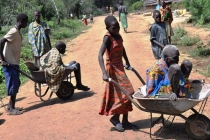

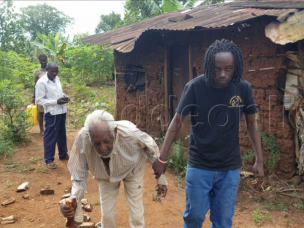
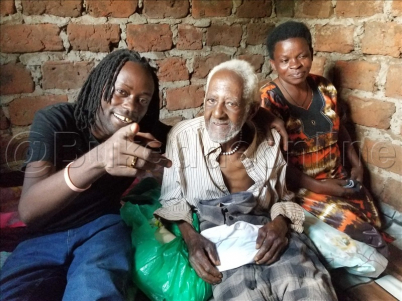
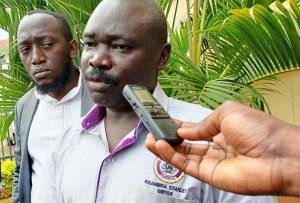
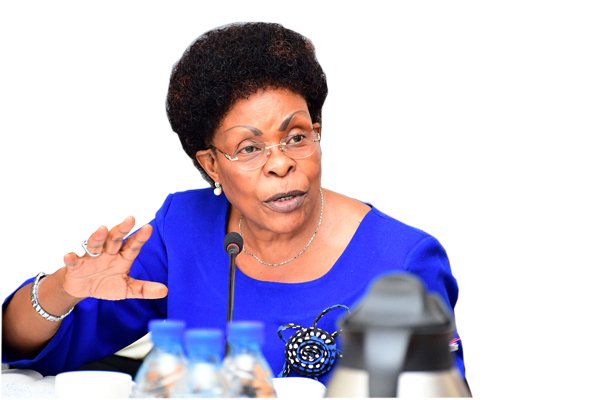
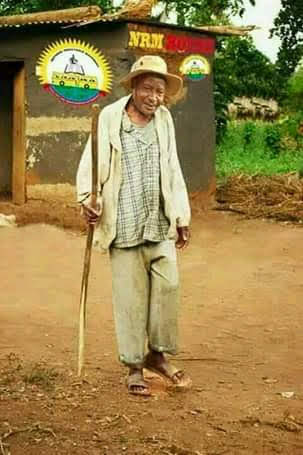 The poor African man with a walking stick
The poor African man with a walking stick
















